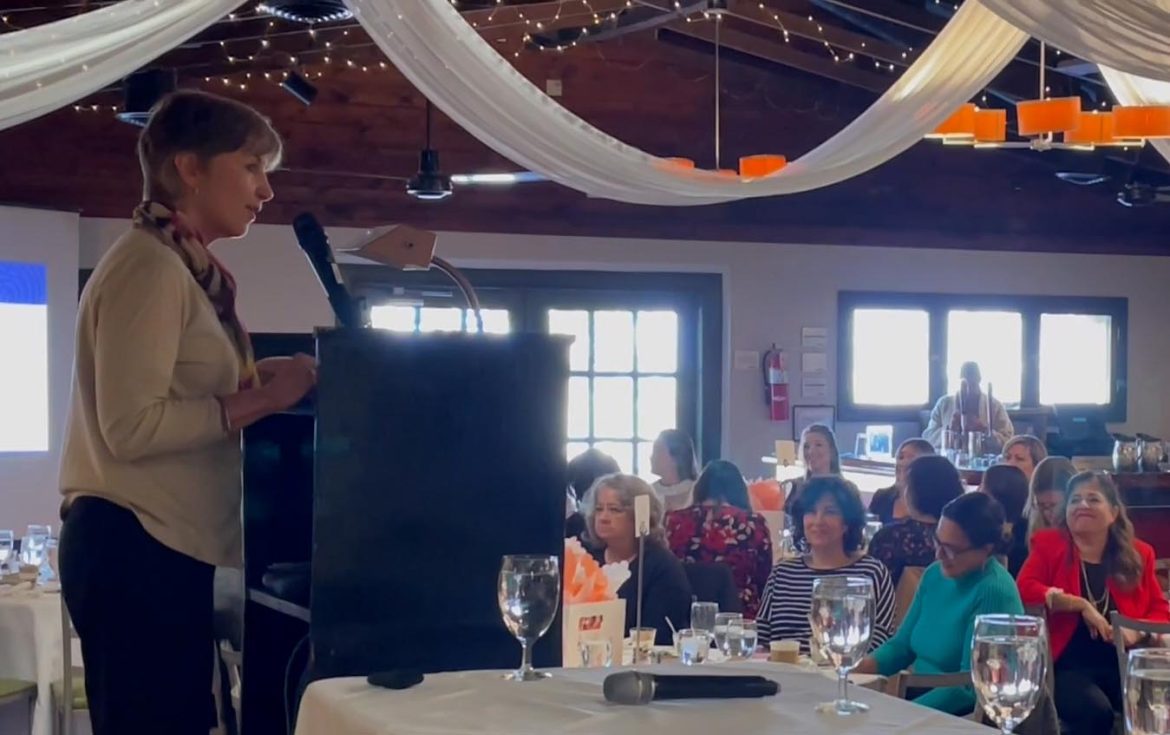More than 60% of women in Texas women lived in households that had difficulty paying for routine expenses during the COVID 19 pandemic because many of them left the workforce to provide care at home, according to Texas Women’s Foundation’s 2022 research.
“What we can do as concerned citizens to close the gap so that this issue is one that everybody is aware of and that we take strategic action to make sure that every woman, every child and every family have the resources that they need to be successful,” said Natalie Eckberg, president of the Women’s Fund of El Paso .
The Women’s Fund of El Paso hosted Wake Up: An Advocacy Power Breakfast on Friday November 18 at Ardovino’s Desert Crossing, to present the Texas Women’s Foundation’s 2022 research report.
The research looks at how women face challenges in the four key pillars of financial security: education, childcare, health insurance and stable housing. The research was conducted by Every Texan and focused on the impact of the COVID-19 pandemic on Texas women and their families.
“Each community is going to have things that are more important there,” said Dena Jackson, chief strategy officer for the Texas Women’s Foundation and keynote speaker for the breakfast. “We see childcare, education, housing and healthcare all building up to make a strong family and to make a strong Texas.”
Women of color and single mothers are disproportionately impacted by these economic hurdles due to systemic barriers, the study showed.
“There’s all this other stuff which seems to impact women more than men to help them get to where they’re going.” Jackson said.
Jackson presented the study’s findings at the breakfast, then moderated a panel of El Paso experts discussing two of the pillars – childcare and education. The panel featured Sereka Barlow, CEO of the YWCA El Paso Del Norte Region, Leila Melendez, CEO of Workforce Solutions Borderplex and Azuri Gonzalez, Director for Institutional Policy and Practice of the Diana Natalicio Institute for Hispanic Student Success.
“Education is a huge component for your ability to live, provide for your children, and increase your social mobility.” Gonzalez told the crowd.
A major barrier for economic security for women is access to affordable, safe childcare. The price for childcare continues to rise yet there is a decrease in availability. Approximately one third of the paycheck of the average woman of color in Texas paycheck goes into childcare, the study shows.
“We consider the childcare industry, the first industry. Because regardless of where anybody works, it’s likely that a parent is going to need childcare.” said Melendez, of Workforce Solutions Borderplex.
The report also showed that more than one-in-five working age women in the state don’t have health insurance. Texas ranks last in the country for women’s health insurance coverage. For a single mother of two to be eligible for Texas Medicaid, she would need to make less than $230 a month.
And when it comes to basic shelter, The report says that 20% of Texas homeowners and 45% of Texas renters spend more than 30% of their income on housing.
Jackson also said women should not be overlooked because of gaps in their resumes while they were supporting their families at home for two years during the pandemic. She said to view it instead as crisis management experience as women were making a difference in their families and communities.
“As employers, we need to make sure that if we see a gap in someone’s resume, we do not think that they are not committed to be having a career. They are committed. And we’ve all been through something that was life changing and very unusual,” she said.
\


